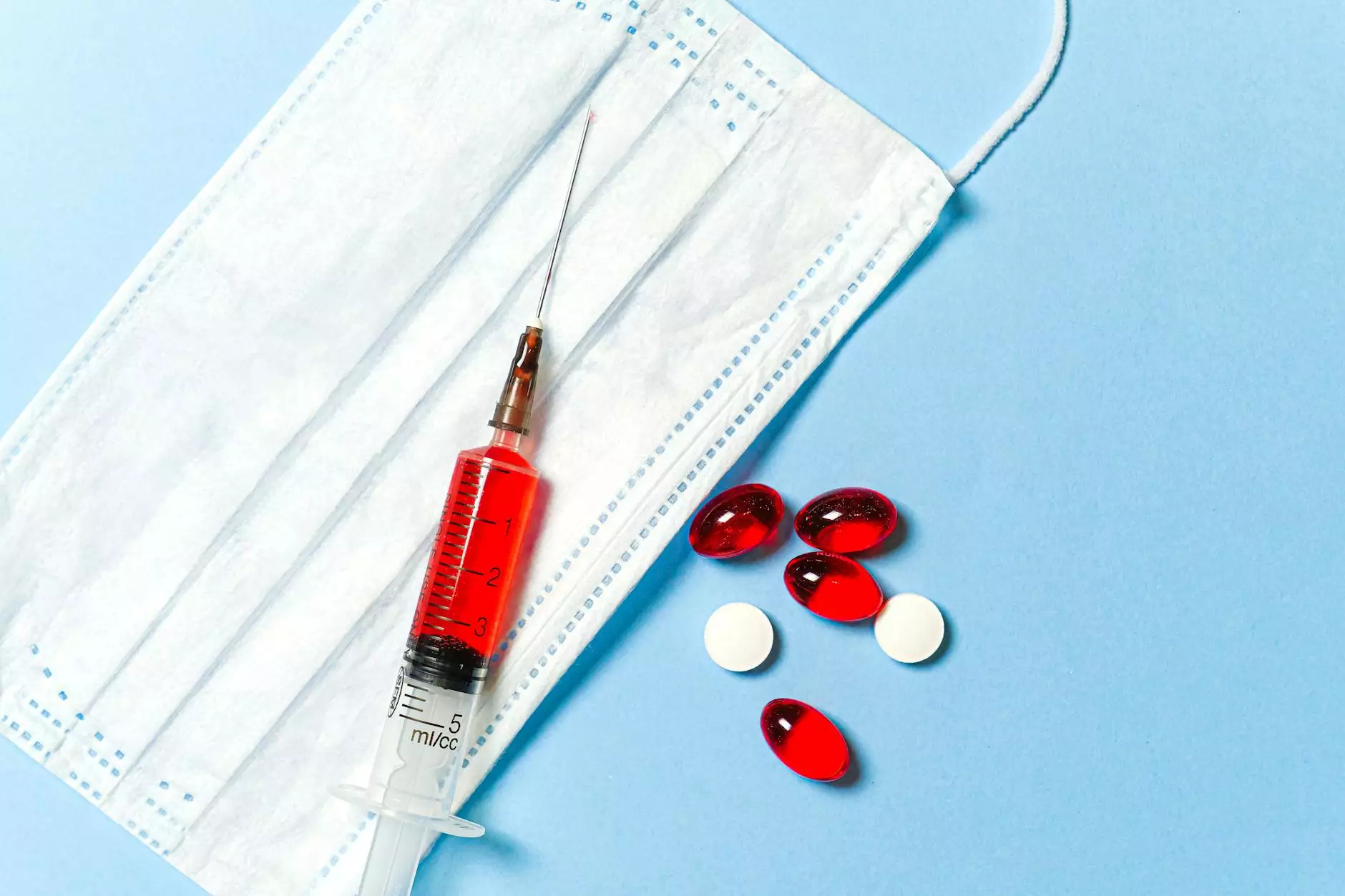Understanding Horse Medication: A Comprehensive Guide

When it comes to the health and well-being of our equine companions, horse medication plays a crucial role. Whether you are a seasoned horse owner or a newcomer to the world of equine care, knowing the ins and outs of horse medication can make a significant difference in your horse's health. This guide delves into the various aspects of horse medication, equipping you with the necessary knowledge to ensure your horses remain healthy and thriving.
What is Horse Medication?
Horse medication encompasses a wide range of pharmaceutical products designed to treat, prevent, and manage various health issues in horses. These medications are used in veterinary practice to ensure that horses can recover from illnesses, manage chronic conditions, and maintain overall health.
The Importance of Proper Medication
- Prevention of Illness: Regular use of appropriate medications can prevent the onset of diseases.
- Management of Chronic Conditions: Many horses suffer from ongoing health issues that require long-term medication.
- Improvement of Performance: Well-managed horses perform better, whether in racing, jumping, or other disciplines.
Types of Horse Medication
Horse medication can be categorized into different classes based on their usage and effects. Understanding these categories can help you make informed decisions when caring for your horse.
1. Antibiotics
Antibiotics are pivotal in treating bacterial infections in horses. Some commonly used antibiotics include:
- Procaine Penicillin: Effective against various bacterial infections.
- Oxytetracycline: Commonly used for respiratory and skin infections.
2. Nonsteroidal Anti-Inflammatory Drugs (NSAIDs)
NSAIDs are essential for managing pain and inflammation. Popular NSAIDs include:
- Phenylbutazone: Often prescribed for pain relief in horses.
- Flunixin Meglumine: Effective in treating colic pain and other inflammatory conditions.
3. Hormonal Medications
Hormonal medications can be used to regulate reproduction and manage certain health issues. Medications such as:
- Regumate: Used to suppress estrus in mares.
- Deslorelin: A GnRH analog for reproductive management in stallions and mares.
4. Dewormers
Deworming is a critical aspect of horse care to prevent parasitic infections. Common dewormers include:
- Ivermectin: Broad-spectrum dewormer effective against various parasites.
- Pyrantel Pamoate: Targets small strongyles and certain other parasites.
5. Vaccines
Vaccination is a crucial preventive measure. Essential vaccines include:
- Equine Influenza: Protects against the common respiratory disease.
- Tetanus Toxoid: Helps prevent this life-threatening illness.
When to Use Horse Medication
Timing and context are critical when it comes to administering horse medications. Here are several scenarios where horse medication becomes necessary:
1. Routine Health Checks
During routine veterinary check-ups, your veterinarian may recommend vaccination and preventive treatments based on the horse’s health status.
2. Change in Behavior or Performance
Any sudden change in your horse's behavior or performance can indicate underlying health issues. Early intervention with appropriate medication can prevent further complications.
3. Signs of Illness
Watch for signs of illness such as:
- Loss of appetite
- Coughing or nasal discharge
- Lethargy
How to Administer Horse Medication Safely
Administering medication to horses can be daunting, but following certain best practices can ensure the safety and effectiveness of the treatment.
1. Follow Veterinary Guidance
Always consult your veterinarian before administering any medication. They can provide dosage instructions and specific recommendations based on your horse’s individual needs.
2. Proper Handling of Medication
Ensure that you handle medications according to the manufacturer’s instructions. This includes how to store, measure, and administer the medication.
3. Establish a Routine
Creating a consistent routine for administering medication can help your horse become accustomed to the process, reducing stress for both you and your horse.
Advancements in Horse Medication
As the veterinary field continues to evolve, new medications and treatment protocols emerge. With advancements such as:
1. Innovative Drug Formulations
New formulations of existing medications are being developed to improve efficacy and reduce side effects.
2. Personalized Medicine
Just like in human medicine, personalized treatment plans tailored to an individual horse's genetic and health profile are becoming more prevalent.
Staying Informed: The Importance of Continuing Education
The world of veterinary medicine is ever-changing. Horse owners should prioritize staying informed about new treatment options, medications, and best practices. Resources such as:
- Veterinary Journals: Regularly reading veterinary publications can keep you updated on the latest research and innovations.
- Workshops and Seminars: Attend events to learn directly from experts in the field.
- Online Courses: Many organizations offer courses for horse owners on various health topics.
Conclusion
Understanding horse medication is essential for every horse owner. From recognizing the different types of medications to knowing when and how to administer them, being informed can lead to better health outcomes for your beloved equine companions. By prioritizing their health with the right medications, you can ensure they lead long, healthy, and happy lives.
For more information, or if you have specific questions about horse medications, don't hesitate to contact a qualified veterinarian or visit racehorsemedcare.com for further resources and guidance.



